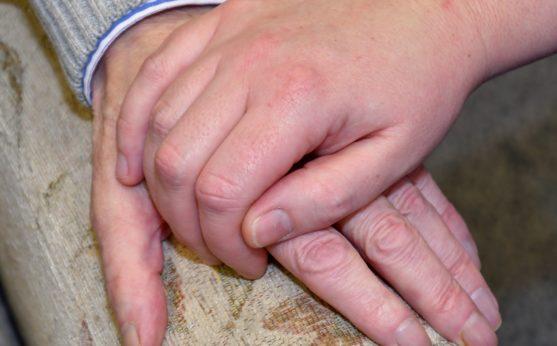Death and dying aren’t things to be hidden away – we have ‘difficult conversations’ and encourage everyone to talk more openly and plan for the future because Dying Matters.
We know talking about dying is a hard thing to do. Discussing the end of your life with the people you love most is emotional and can be uncomfortable, so it’s no wonder people put off that significant conversation.
It’s important that you feel confident when speaking to your loved ones about your death; about your wishes around end of life care and for your funeral, as well as anything you’re worried about either for yourself or for your family.
Avoiding these conversations can lead to isolation. You may feel as though you are alone at an extremely important time of your life, and that can add to the distress of what you are dealing with. You may feel that although you have accepted you are dying, talking about death with your family may lead them to feel uncomfortable and upset.
Our staff can offer a supportive listening ear, and will be able to help you start those difficult conversations.
It’s important to start having these conversations early, as the more you talk about death and dying, the easier it will be for those around you. It means you will be able to make a Will if you haven’t already, and sort out your finances, discuss how you want to die – whether it’s at home, in hospital or in a hospice, and plan your funeral.
The earlier you start these conversations, the more time your family will have to ask any questions they may have. They will feel involved in this important stage of your life and in the hard decisions that may need to be made.
Don’t forget young children are as important a part of your family as older members, so don’t avoid those conversations with them. They too will have questions about what’s happening, and speaking to them may help any fears they may have about death and dying.
Sometimes, these conversations may happen out of the blue after a throw-away comment which can lead you to talk about your death. Other times, you may need to choose a time and a place to start your conversation. Make a plan of what you would like to say, and make sure by the end of your conversation there is nothing left unsaid, and no questioned left unasked or unanswered.
There is lots of help available get those conversations around death and dying started. And thanks to our work with our partners at Blackpool Teaching Hospital, we have launched Our Fylde Coast Compassionate Communities, providing specialist support to help community leaders hold important conversations with confidence.
Find out more about Our Fylde Coast Compassionate Communities.
Age UK has created a useful video about what to expect as someone approaches the end of their life, including how to have those conversations and deal with mixed emotions and the changes in their appearance and behaviour as they reach the final days and hours. The video is accompanied by a useful guide which can be used when talking to your family members and can be accessed here.
The charity Dying Matters has linked up with Macmillan Cancer Support to put together information on what to say, how to say it and where to find help in a useful guide, available here.


